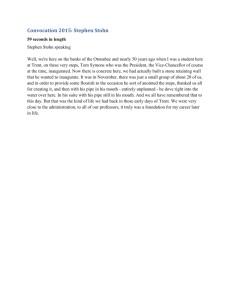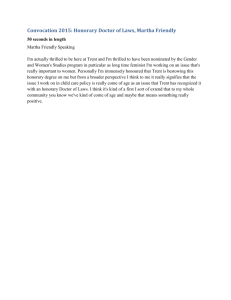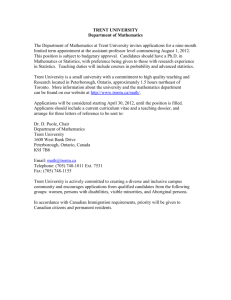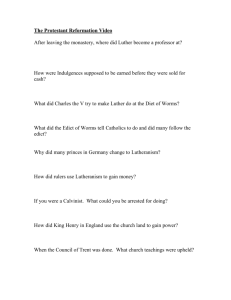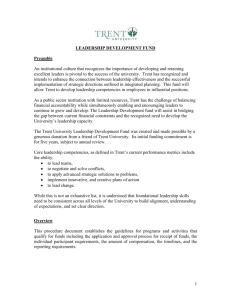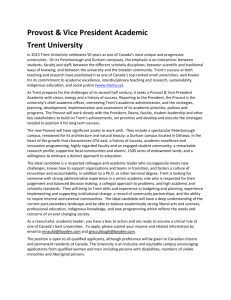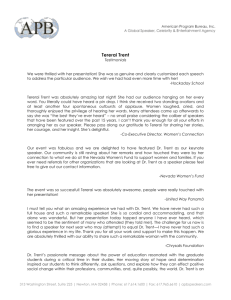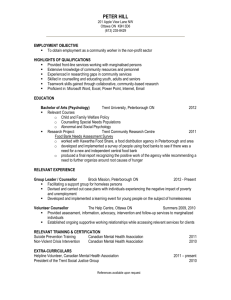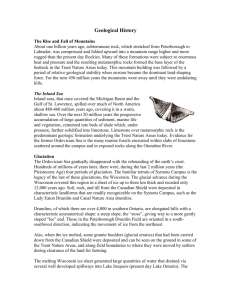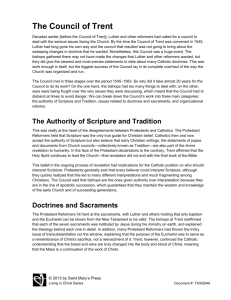Decisions of the Council of Trent
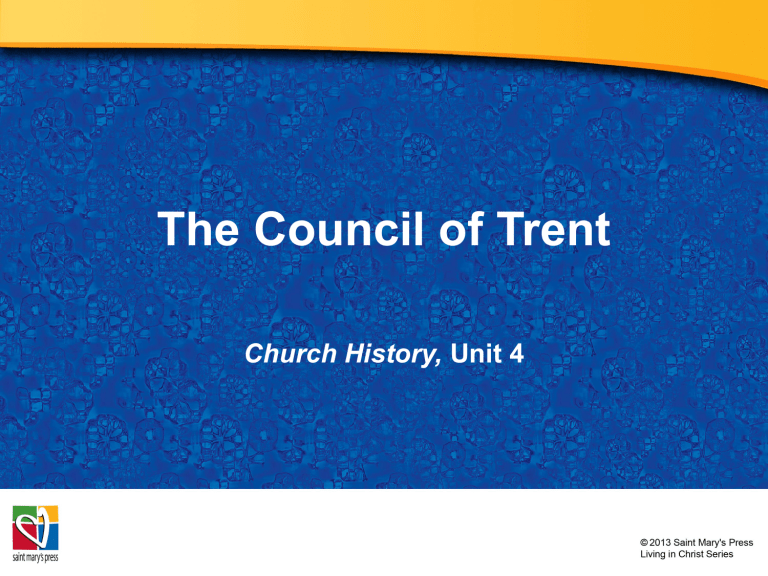
The Council of Trent
Church History, Unit 4
The Counter-Reformation, or
Catholic Reformation, refers to the movement within the Church to reform abuses and other problematic practices pointed out by Protestant reformers like
Martin Luther.
The Catholic Reformation began with the Church’s official response to the Protestant
Reformation, an Ecumenical
Council held in Trent, Italy, from
1545 to 1563.
Image in public domain
Image in public domain
Clergy and laity both called for an
Ecumenical Council to help the
Church formulate a response to Martin
Luther and the other reformers.
After a number of secular European princes embraced the Protestant
Reformation, especially in Germany,
Pope Paul III finally called for a council.
Once the Council finally convened in
1545, proceedings paused several times due to wars and epidemics before the Council’s final adjournment in December 1563.
Decisions of the Council of Trent
Luther had argued that the deuterocanonical books of the Old Testament should not be part of the
Church’s canon of Scripture because they do not appear in the Hebrew Scriptures.
The Council of Trent confirmed that these books should be included in the Old
Testament as part of the canon.
The Council also affirmed the Vulgate —
Saint Jerome’s fourth-century Latin translation of the Scripture canon —as the authoritative text of Scripture.
Decisions of the Council of Trent (continued)
Luther had also argued that Jesus Christ instituted only two Sacraments, Baptism and the
Eucharist. He considered the other five Catholic
Sacraments to be invalid.
The Council of Trent confirmed the validity of the Seven Sacraments of the Church as instituted by
Christ: Baptism, Confirmation, the
Eucharist, Penance and
Reconciliation, Matrimony, Holy
Orders, and Extreme Unction
(today called Anointing of the Sick).
Image in public domain
Decisions of the Council of Trent (continued)
The Council of Trent also confirmed teachings about individual Sacraments that were being challenged by
Protestants:
• Confirmed that Jesus Christ is truly present in the
Eucharist through Transubstantiation. Some
Protestants had argued that the Eucharist is merely symbolic.
• Stated that the Sacrament of Holy Orders confers an indelible mark on the soul of the man who is ordained.
• Upheld requirements for priestly celibacy, in response to Protestant arguments in favor of allowing priests to marry.
Image in public domain
Decisions of the Council of Trent (continued)
• Required that a priest witness the Sacrament of
Matrimony, with at least two additional witnesses.
• Affirmed the doctrine of Original Sin and its remission through the Sacrament of Baptism.
Decisions of the Council of Trent (continued)
One key dispute between
Luther and the Church concerned the doctrine of justification: the process by which God frees us from sin and sanctifies us.
Luther argued that humankind is justified, or made holy, by faith alone.
The Council of Trent reaffirmed the Church’s teaching that we are justified through faith and good works combined.
Image in public domain
Decisions of the Council of Trent (continued)
The Council of Trent instituted other pastoral reforms.
Pastoral refers to how a shepherd cares for sheep — in this case, pastoral refers to how the Church cares for and supports her people.
• Affirmed that the Mass truly makes Christ’s sacrifice present and carries out the work of salvation.
• Called dioceses to form seminaries to produce well-trained, well-educated clergy.
• Reaffirmed the Nicene Creed as the Church’s profession of faith.
Many decisions at the Council of Trent continue to govern the Church. Which of these decisions do you recognize as part of the Church’s doctrine or practice today?
